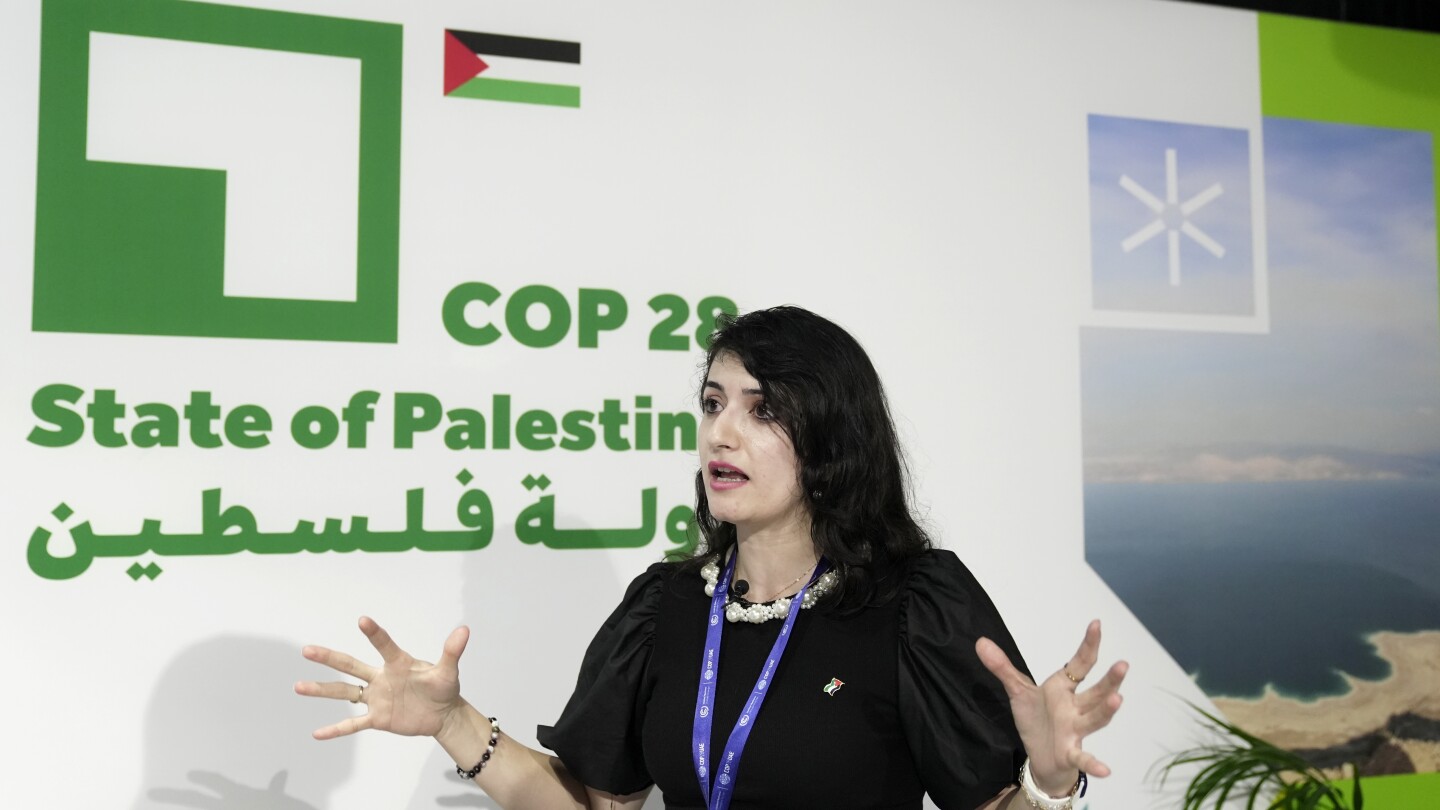DUBAI, United Arab Emirates (AP) — As world leaders gathered for the COP28 climate summit in Dubai, the collapse of a cease-fire in the Israel-Hamas war Friday plunged the conflict back into open combat and cast a long shadow over the talks.
Israel’s top diplomat for the Middle East huddled with leaders at the summit as his colleagues went through a book of posters of those held hostage by the militant group Hamas, placing yellow “released” stickers by some while looking at others still held. Meanwhile, just a street away at the Palestinian territories’ first-ever pavilion, an official gave a horrified look when Associated Press journalists gave her the news that Israeli airstrikes and ground fighting in the Gaza Strip had resumed.
Even United Nations Secretary-General Antonio Guterres brought up the fighting in his remarks at a COP conference meant to focus on restraining global warming.
“As we see in this region, conflicts are causing immense suffering and intense emotion,” he told the delegates. “We just had the news that the bombs are sounding again in Gaza.”
The war hadn’t been initially the plan for Israel at this Conference of Parties held in the United Arab Emirates, with which it only struck a diplomatic recognition deal in 2020. Their country pavilion sits just across from the Emiratis’ own, decorated inside with an image of a drone spraying a field and another playing on the biblical phrase calling Israel “the land of artificial milk, the land of artificial honey.”
Oded Joseph, the Israeli Foreign Ministry’s top diplomat for the Mideast, told the AP that he believed that the war had not ruptured Israel’s ties to the UAE and others.
“The strategic decision that was made by Israel and by the moderate countries in the region is very, very clear,” he said. “And I think this has not changed.”
However, he acknowledged what he called the “tragic images” of dead Palestinian women and children after Israeli airstrikes in the Gaza Strip now being played across Arab television networks and social media. However, he contended those deaths came because “Hamas took a strategic decision to take human take civilians as human shields.”
“Unfortunately, wars are always ugly and wars always demands us for us to pay in many prices,” Joseph said. “But I think the justification of this war is very, very clear.”
For Hadeel Ikhmais, a climate change expert with the Palestinian Authority on hand for the event, that explanation rang hollow when she recounted the deaths seen by Palestinians in the conflict, both in the Gaza Strip and the West Bank where she lives. She recounted gunfire hitting her home during an Israeli raid and the struggle to be able to even fly to Dubai for the summit.
“We are here all together, all the world together, to combat climate change and really, we’re negotiating for what?” she asked. “We’re negotiating for what in the middle of a genocide?”
Hamas started the war with a deadly Oct. 7 attack on Israel, during which it and other Palestinian militants killed about 1,200 people, mostly civilians, and took around 240 people captive. Since then, Israel’s bombardment and invasion in Gaza have killed more than 13,300 Palestinians, roughly two-thirds of them women and minors, according to the Health Ministry in Hamas-ruled Gaza.
During the week-long truce, Hamas and other militants in Gaza released more than 100 hostages, most of them Israelis, in return for 240 Palestinians freed from prisons in Israel. Virtually all of those freed were women and children.
Sympathies at the conference appeared to be siding with the Palestinians, with one environmentalist group handing out handbills repeatedly saying: “Cease-fire Now.” Another exhibition of children shoes represented those killed in the Gaza Strip. Jordan’s King Abdullah II also decried the war.
“The massive destruction of war makes the environmental threats of water scarcity and food insecurity even more severe,” he said.
The resumption of fighting came as U.S. Secretary of State Antony Blinken landed in Dubai as part of shuttle diplomacy that had aimed to see the cease-fire continue and most hostages held by Hamas exchanged for Palestinians held by Israel. U.S. President Joe Biden has repeatedly called for a return to negotiations over a two-state solution to end the decadeslong Israeli-Palestinian crisis.
However, Joseph dismissed any idea of negotiating with Hamas, a group that Israeli Prime Minister Benjamin Netanyahu has repeatedly pledged to destroy in the military campaign.
Israel “couldn’t have reached (the hostage releases) without first making this military operation,” he said.
Ikhmais also dismissed the idea of negotiations starting again over the two-state solution, given the hard-right coalition Netanyahu has surrounded himself with and the actions they’ve taken to support Israeli settlers on land the Palestinians hope to have for their future state. Meanwhile, the billions of dollars it will cost to repair the Gaza Strip will take away from any climate mitigation, she said.
“During the last 20 years, where was the two-state solution?” Ikhmais asked. “Nowadays, who is hindering this is the Israeli side. … It’s either us or them — this is in their mentality. This is how the Israeli occupation feeds themselves; by taking our land, by taking our lives, stealing our culture.”
___
Associated Press writers Jamey Keaten, Lujain Jo, Olivia Zhang and Matthew Lee contributed to this report.
___
Associated Press climate and environmental coverage receives support from several private foundations. See more about AP’s climate initiative here. The AP is solely responsible for all content.

